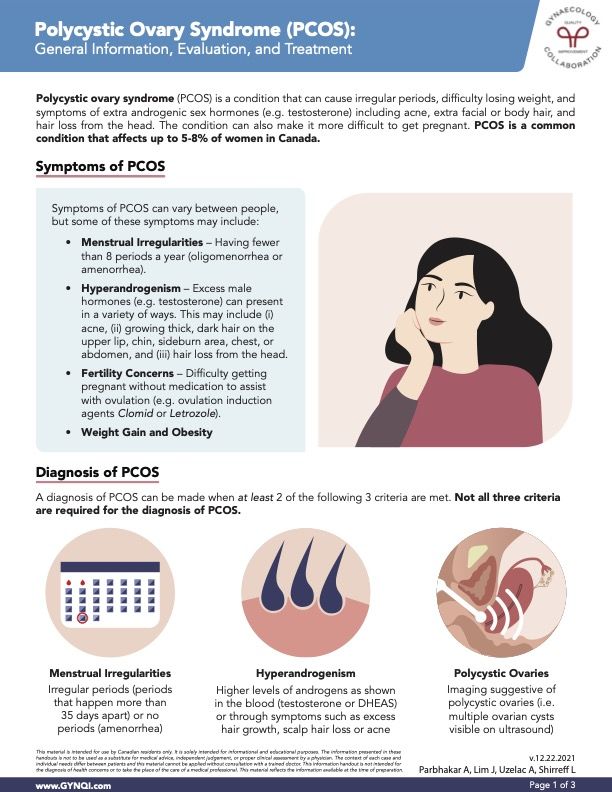Polycystic Ovary Syndrome (PCOS) is a common hormonal disorder that affects women of reproductive age. It is characterized by irregular periods, excess male hormone levels, and polycystic ovaries.
Symptoms of PCOS
The symptoms of PCOS can vary from woman to woman, but the most common ones include irregular periods, heavy bleeding, acne, hair loss, weight gain, and fertility issues. It is important to note that not all women with PCOS will experience all of these symptoms.
Causes of PCOS
The exact cause of PCOS is unknown, but experts believe it may be due to a combination of genetic and environmental factors. Insulin resistance and hormonal imbalances are also believed to play a role in the development of PCOS.
Diagnosis and Treatment
Diagnosing PCOS can be challenging as there is no single test to confirm the condition. A healthcare provider will typically conduct a physical exam, review medical history, and perform blood tests to check hormone levels. Treatment for PCOS usually focuses on managing symptoms and may include lifestyle changes, medications, and in some cases, fertility treatments.
Impact on Women’s Health
PCOS can have a significant impact on a woman’s overall health and well-being. In addition to the physical symptoms, PCOS can also lead to emotional issues such as depression, anxiety, and low self-esteem. It is important for women with PCOS to seek support and treatment to manage the condition effectively.
Managing PCOS
While there is no cure for PCOS, it can be managed effectively with proper treatment and lifestyle changes. Maintaining a healthy weight through diet and exercise, managing stress levels, and seeking regular medical care are all important steps in managing PCOS. It is also important for women with PCOS to work closely with their healthcare provider to develop a personalized treatment plan that addresses their specific needs.
Conclusion
PCOS is a common hormonal disorder that affects women of reproductive age. While it can have a significant impact on a woman’s health and well-being, it can be managed effectively with proper treatment and lifestyle changes. By understanding the symptoms, causes, and impact of PCOS, women can take control of their health and work towards managing the condition effectively.
